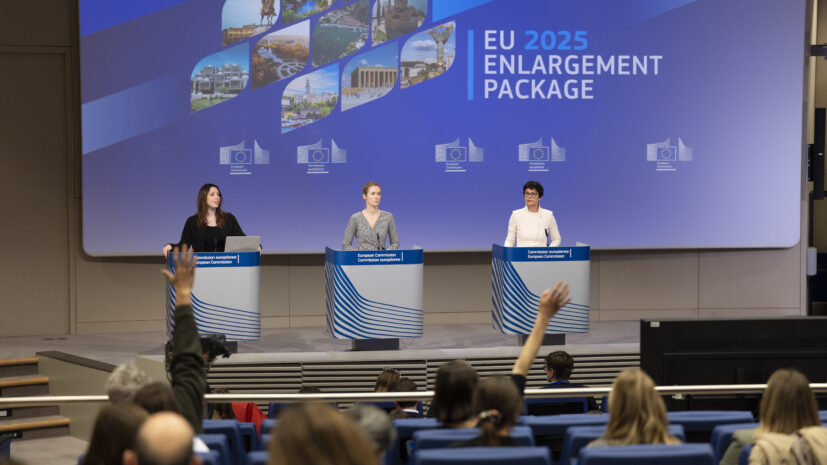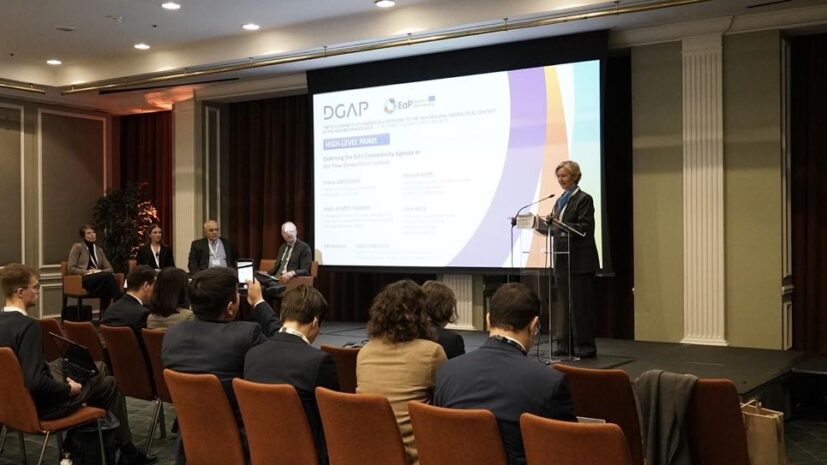EaP Think Tank Network

Image generated by ChatGPT, OpenAI, July 29, 2025.
Original Content
Armenia’s Geopolitical Juggle and Parliamentary Elections
These Notes from the Road are based on Dr. Stefan Meister’s trip to Armenia from 11 to 15 June, 2025. The visit included time spent in Yerevan at the Applied Policy Research Institute of Armenia (APRI) foreign policy conference, plus two and a half days with the EU Monitoring Mission in Armenia (EUMA) in Yeghegnadzor, Goris, and Kapan.
Regional Developments and Implications for Armenia
- The war between Israel and Iran has fundamental implications for the South Caucasus and particularly for Armenia. Since Iran is the only country in the broader region that resists an extraterritorial corridor on its northern border with Armenia controlled by Azerbaijan, a weakened Iran could undermine Armenia’s bargaining position towards Baku. Even worse, if the regional balance of power further changes, it could provoke military action.
- Azerbaijan is seen as a close ally of Israel, which also supported Israeli activities against Iran. During the Israeli and US attack on Iran, the border crossing at the Iranian-Armenian border was closed, with a long line of lorries queued waiting on both sides. Iran seemed to be very careful in allowing lorries into the country; most likely, the government was afraid of possible provocations from Israeli forces. Since this is one of the few border crossing points for trade in Iran, it has significantly impacted the Iranian economy.
Upcoming Parliamentary Elections
- Currently, the main topic for the Armenian government and Premier Minister Pashinyan is the parliamentary election in June 2026. All action and communication by the Premier Minister and the government must be seen in this context, including the move against the Armenian Apostolic Church. The government considers the Church as one channel for destabilization, provocations, and Russian influence since there are close ties with Russia.
- Nikol Pashinyan is increasingly unpopular in society, but the lack of political alternatives still makes him the most popular politician in the country. Since the disputed region of Nagorno-Karabakh was lost under his leadership, reforms are slowly and contradictory moving, and no peace agreement with Azerbaijan has yet been signed; he has little to show for himself. The current (best case) expectation is that his party might win again, but it needs a coalition partner.
- It is predicted that Russia will try to support the foundation of new parties attempting to steal votes from the governing Civil Contract party, to then unite these new parties after the election. Concurrently, Russia might try to demobilize the ruling party's electorate through information campaigns.
- Armenian experts agree that Russia will massively try to influence the election outcome to get a more Russia-friendly government. Sergei Kiriyenko, the first deputy of staff in the Russian presidential administration, will also be responsible for Armenia, as he is responsible for Moldova and the disputed Georgian regions. His last success was the election of the pro-Kremlin candidate in the presidential election of Abkhazia. However, several Armenian experts argue that Russian experts do not properly understand Armenia, and it will be more difficult for them to influence the election, as in Moldova.

The EU’s Eastern Neighborhood in 2026: Key Trends to Follow
“What’s Brewing in the Eastern Neighborhood?” brings timely questions to a panel of experts, sparking dynamic debate and showcasing a range of per...

The New Enlargement Package Sends the Right Message – Now the EU Needs the Backbone to Go Forward
The EU’s new enlargement package puts geopolitics firmly at the centre – and rightly so. Russia’s full-scale invasion of Ukraine jolted enlargement out of...

EU’s Connectivity Agenda. Takeaways from the DGAP High-Level Event
Following the DGAP high-level event organized on December 2 in Brussels Anastasia Pociumban provides an outlook on the event’s key takeaways.
